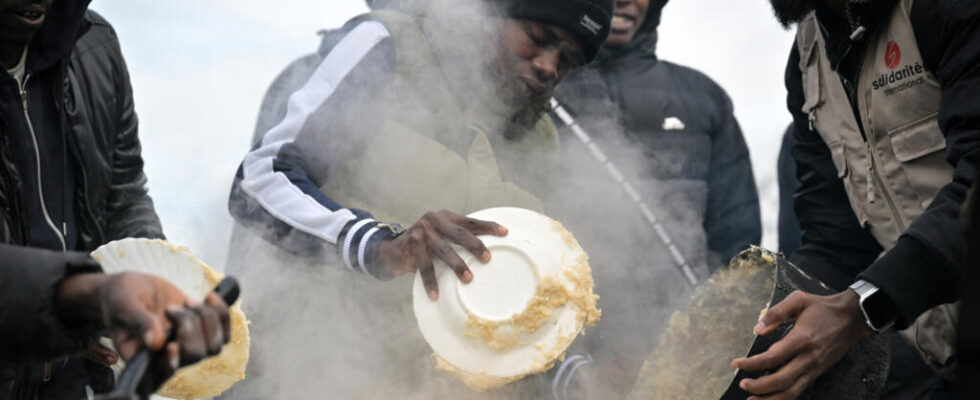During the European elections, the debates mainly focused on migration issues. On this occasion, RFI offers you a report with Sudanese refugees in Ouistreham, who are waiting for their “Dubliné” status to be reclassified so that their asylum application procedure can begin.
In France as in other European countries, the theme of immigration will have dominated the debates of the European elections, which take place from June 6 to 9. However, theEuropean Union only has jurisdiction over the right to asylum, notimmigration family or professional. These elections will have all the less weight on European immigration policy as Parliament has just adopted the asylum and migration, after several years of tough negotiations. Among the hotly debated points, the Dublin regulation, on which a large part of the European asylum system is based, but which certain countries now refuse to apply. Illustration in a migrant camp in Ouistreham, in the north of the Francefrom where ferries leave for England.
Read alsoWhat is contained in the asylum and migration pact adopted by the European Parliament
A large tent houses the camp’s treasure. An electrical box that allows you to charge your phone. Nearly 70 people live here along a canal, not far from the port. A particularity of this camp is that it only has young Sudanese people of the Zaghawa ethnic group. They come from North Darfur, which is in the grip of a civil war. Moussab is 25 years old. He arrived last October, after a long and dangerous journey. “ Libya, Tunisia, Italy… No work there! Here, in France, things will be fine », he hopes.
Moussab has taken steps to request asylum in France, but like all the other Sudanese from Ouistreham, he is what we call a “ dublin “. Fleur Bertrand-Montembeault, volunteer at the Cimade association, supports them in their administrative journey. “ Asylum seekers, when they arrive in France, the first thing they do is declare themselves to the prefecture.she explains. Very often, we realize that they have already left their fingerprints in a third country. Italy, Spain, sometimes Malta or Cyprus. This delays the entry into the normal procedure, in France, of their asylum application. » Because it is the country of entry into the European Union which is responsible for the asylum request. In this case, Italy.
Read alsoIn Trieste in Italy, tailor-made reception for asylum seekers
However, since December 2022, the government of Giorgia Meloni has systematically refused the return of these foreigners to its soil. If the procedure is so long for Moussab and his comrades, it is because France nevertheless continues to send transfer requests to Rome and to wait for responses which are nevertheless always negative. “ So, we end up with people who wait up to eight months, nine in the case of Moussab. The camp, in addition to being a waiting area, is a transit zone and a housing area for some », she explains.
A little further on, still along the canal, Moussab shows us a set of small tents hidden in the bushes. He shares a wooden plank cabin with another Sudanese. “ The situation is really tough herehe said seriously. There are people who have been there for six months, seven months, eight months… The situation is so bad that some decide to leave for England. It’s very dangerous, but there are still plenty of people who try by any means, but I want to stay here, not go to England. »
Associations have been fighting for months for France to agree to examine the asylum requests of Dubliners coming from Italy upon their arrival. In vain, for now. Yet, ” the international court of asylum recognized that Sudan was an area in which extremely serious things were happeningexplains Nathalie Marie, volunteer at Cimade. Which is all the more infuriating. Making them wait while we know very well that, ultimately, they will be given asylum… »
The asylum and migration pact adopted by the European Parliament provides for an evolution of the Dublin regulation in 2026, with a quota system for asylum seekers per Member State. If a country refuses, it will have to pay 20,000 euros per person not supported.
Read alsoEuropean Union: the vast reform of migration policy finally adopted
